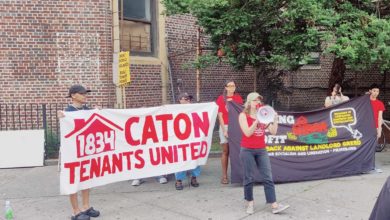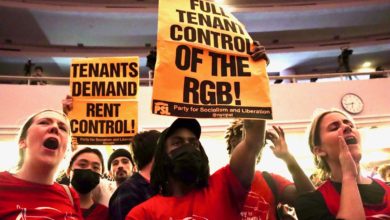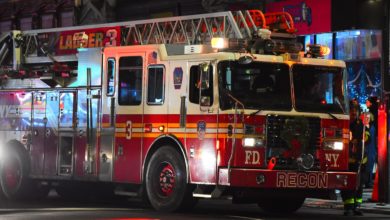In its 2003 annual report to shareholders, Consolidated Edison proudly declared, “Reliablity is our focus.” For workers in New York City, the irony is clear. By “reliability,” Con Ed means that it will reliably provide massive profits for its owners. As for providing service to workers, Con Ed isn’t reliable at all.
In the searing summer heat of July and early August, New Yorkers were assaulted by massive power outages and
|
Working class families and small businesses are hit especially hard. Less than two weeks ago, a power outage in a 40-floor building complex in upper Manhattan left elderly and sick people with no way to get up to their apartments. Con Ed did nothing until the next day. A poor section of the Bronx around East 194th Street was without power for three and a half days last week, yet blocks away, Fordham University had no such problems.
What’s behind the blackouts?
Tyson Slocum, senior researcher with Public Citizen’s Critical Mass Energy Program in Washington, D.C., recently told the Village Voice that deregulation of public utilities was the root cause of the Queens blackout. In 1996, New York’s Public Service Commission mandated deregulation for the state, which took effect in 1999.
Capitalist corporations like Con Ed and the now-defunct Enron worked with federal and state governments to deregulate states’ highly regulated public utilities, including energy. With deregulation, private utility corporations became less accountable for updating equipment and for power failures or other problems.
Slocum said, “Ten years ago Con Ed was a heavily regulated monopoly with a legal obligation to serve all customers in their service area, with an obligation to reinvest. Under deregulation, forget all that. Con Ed was broken up and no longer has its books pored over by the PSC, and is no longer required to reinvest big portions of its profits into maintenance.”
Since deregulation, Con Ed and other private energy companies have lacked incentive to put money into power distribution, which yields fewer profits, and more money into power production and other areas where they’ll get a high rate of return.
Deregulation is certainly a major problem. But capitalist greed and the search for ever-expanding profits motivated the push for deregulation. Con Ed is a subsidiary of Consolidated Edison, Inc., one of the nation’s largest private energy companies, with approximately $12 billion in annual revenues and $25 billion in assets. The net income of Con Ed, the subsidiary, grew from $537 million in 2004 to $719 million in 2005.
Within the confines of capitalism, pressure from corporate interests to deregulate is huge, because laws that require companies to meet certain standards are a barrier to profits. The decision of New York’s PSC to deregulate public utilities paved a legal road for companies like Con Ed to further steal from and underserve the working class. But the capitalist utilities were doing this well before 1999, and they would have continued no matter what laws stood in their way.
The recent heat wave has been very hard on the working class, but the resulting blackouts were not natural disasters. They were entirely preventable. Adequate technology exists to keep the power grid up and running through even the most severe weather conditions. But Con Ed and its ilk have refused to put needed funds into equipment maintenance and upkeep, instead opting for acting with criminal negligence. The blackouts were caused by the cancer that is capitalist greed, a cancer that ravages this society in ways that are kept out of the public eye, while digging ever deeper into the public’s wallets.







